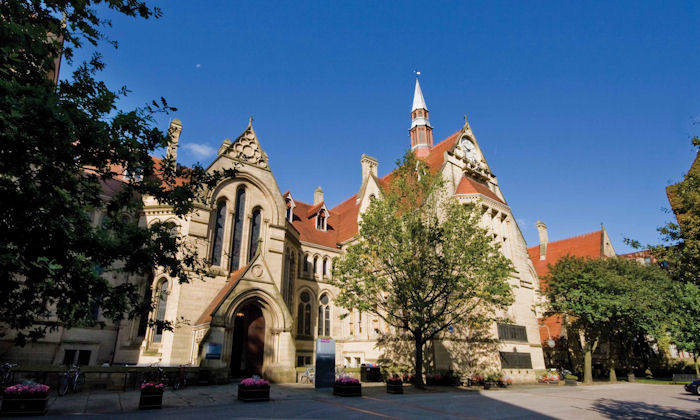REF results confirm our University as a research powerhouse
12 May 2022
A message from Professor Dame Nancy Rothwell and Professor Colette Fagan

Dear colleague
Our Research Excellence Framework (REF) findings are now out and – with a heartfelt thanks to all the academic and PS colleagues who have made this possible – we are able to report some very encouraging results.
Our results
Overall, 93% of the University’s research activity was assessed as ‘world-leading’ (4*) or ‘internationally excellent’. We also ranked in 10th place in terms of grade point average, an improvement from 19th in the previous exercise, REF 2014.
We retained 5th place for research power* – the quality and scale of research and impact – and ranked in 8th place in terms of grade point average**, an improvement from 17th in the previous exercise, REF 2014. The Times Higher Education places us even higher at 8th on GPA (up from 17th place), as their analysis excludes specialist HE institutions. This result was built upon a significant increase in research assessed as ‘world leading’ (4*) between REF 2014 and REF 2021.
Manchester has one of the largest and broadest REF submissions in the UK, entering 2,249 researchers (2,125 FTE) across 31 subject areas.
The University came in the top three nationally for the following subjects (Unit of Assessment by grade point average or research power): Allied Health Professions, Dentistry, Nursing and Pharmacy; Business and Management Studies; Chemistry; Classics; Drama, Dance, Performing Arts, Film and Screen Studies; Development Studies; Engineering; Physics; and Sociology.
The University had 19 subjects in the top ten overall by grade point average and 15 when measured by research power.
This is the first time since 2014 that this UK government exercise has been held and it is of immense significance to our research funding, and reputation as a leading research university. The REF 2021 result will inform our Quality-Related (QR) funding from Research England. Since 2014, this equates to approximately £300M, with the most recent QR allocation for 2020/21 totalling £44.3M.
Full results have been published on our website and local communications for subject Units of Assessment will be issued shortly.
Our impact
Beyond the numbers is the impact of our research, examples of which were included for the evaluation part of our REF submission. 96% of our impact was assessed as world-leading or internationally excellent (3*/4*). The range and scale of this is truly impressive and we are very proud to present a number of these case studies on the University website.
Researchers from our University make an important contribution to solving the world’s most urgent problems, and we rank 9th in the world for delivering against the UN Sustainable Development Goals in the Times Higher Education Impact Rankings.
Our environment
We’re also very pleased with our ‘research environment’ score with 99% of our environment assessed as world-leading or internationally excellent (3*/4*). This is a reflection of the policies we’ve put in place and investment in our infrastructure and people which makes this a great place to study, to train as a postgraduate researcher and to carry out research at all career stages.
Thank you
Thank you for all your contributions to our REF submission – it is a huge logistical task which requires effort and dedication from many academic and PS staff.
The quality of our submission rests on the collective research efforts of our researchers, including our postgraduate researchers, and our research technicians and professional services colleagues.
We will now develop a more detailed analysis of the results for each of the subject areas submitted, in discussions with Faculty and School leadership teams.
It is the difference that our research makes, alongside the impact of our teaching and learning and social responsibility activities that makes us all feel so passionately about our University.
Nancy and Colette
Professor Dame Nancy Rothwell, President and Vice-Chancellor
Professor Colette Fagan, Vice-President for Research
*Research Power is calculated by grade point average, multiplied by the number of FTE staff submitted (FTE - full-time equivalent head count) and gives a measure of scale and quality. Grade Point Average (GPA) measures overall or average quality of research, which takes no account of the FTE submitted.
**Grade point average is a measure of the overall or average quality of research calculated by multiplying the percentage of research in each grade by its rating, adding them all together and dividing by 100.
